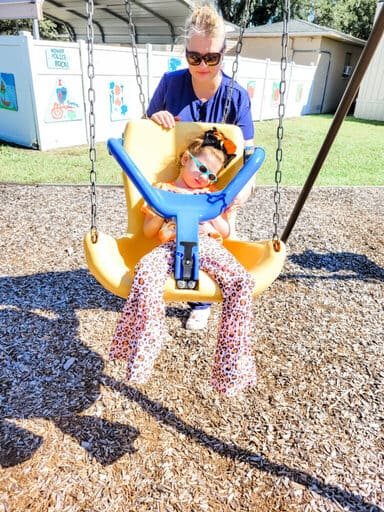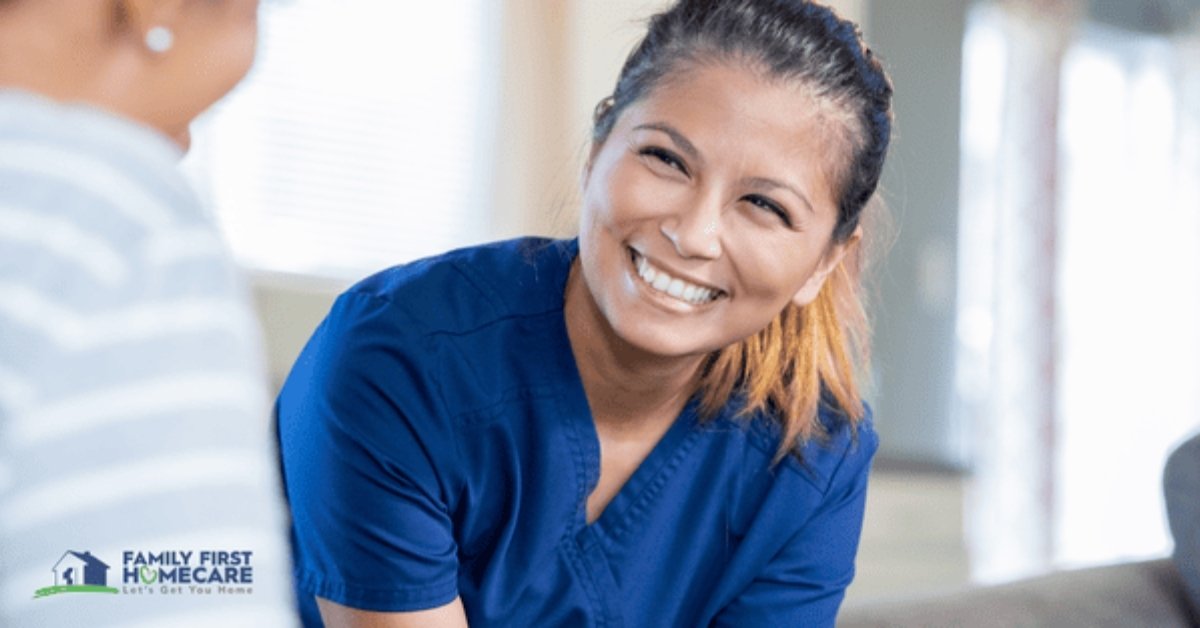Pediatric homecare nurses have the privilege of providing one-on-one care and building relationships with their patients. It’s a nursing career that looks quite different than a typical healthcare facility job. We talked to our nurses to gather what it looks like to live a day in the life of a pediatric homecare nurse at Family First.
How do you start your day?
Like most jobs, nursing often starts with a cup of coffee and a good breakfast. Our nurses double check their nursing bag and head to their patient’s house. When they arrive, the first thing they do is check in with the off-going nurse or parent to see how things are going.
Depending on the patient’s needs, the morning will often consist of getting the patient ready for the day. This can include dressing, changing diapers, brushing teeth, preparing medication, feeding, checking vitals, and assessing the patient. Our nurses are sure to check in with the patient, asking how they are feeling, even if they are nonverbal.
“When I go to a patient’s home, I always arrive on time. I do my rounds with the off going nurse, assess my client, do my vitals signs, gather all supplies I need for the shift, monitor, communicate with the patient and family, chart every detail, and make sure that the patient is comfortable and free of pain.”
Registered Nurse, Family First Homecare
A typical day as a pediatric homecare nurse.
Our patients have a wide variety of medical needs and range from infants to teenagers. Many of our homecare nurses have different experiences, however their main job remains the same – to provide high-quality care. Our nurses spend a lot of time assessing their patient and documenting any events that may occur.
Some patients require nurses to go to school with them, while others spend their days at home, doing activities like listening to music, going outside, doing crafts, or watching television. Some patients are busybodies and like to stay entertained. Homecare nurses will facilitate fun and developmentally stimulating activities, handle feeding, administer medications, change diapers, do laundry, and document the patient’s behavior throughout the day.

Check out this patient story!“A typical day for me as a night nurse in homecare is a really relaxed environment because everyone in the household is winding down or already asleep. Usually, my schedule consists of routine flushes as per orders, diaper changes and pericare, repositioning every two hours, setting up and monitoring overnight feeds, monitoring for seizure activity and giving rescue medication if needed, giving scheduled medications, and providing care such as oral care and bed baths.”
Licensed Practical Nurse, Family First Homecare
How do you end your workday?
At the end of a homecare shift, it’s important to wrap up documentation and make sure the patient has a dry diaper, is clean and fed, and has had any necessary medications. Our nurses are sure to clean up any toys or activities from the day and leave the next caregiver, whether parents or another nurse, with a detailed report and clean space.
“Before I end my shift, I like to do my last round, make sure the patient is dry and clean, communicate with my supervisor about my replacement, do my documentation, restock, and do my round with the on-coming nurse.”
Registered Nurse, Family First Homecare
At the end of a shift, our nurses end their day by saying goodbye to their patient and the family. Providing one-on-one care gives our nurses the opportunity to build meaningful relationships with their patients. Many times, these relationships last years and nurses become part of the family.
What skills are required for pediatric homecare nursing?
Just like any nursing career, homecare requires critical thinking, patience, empathy, and compassion. With a wide range of medical complexities that our nurses care for, we provide patient-specific training to make sure that each nurse is confident in their skills and ability to care for their patients.
Our nurses are skilled in medication administration, cleaning and body care, g-tube and trach knowledge, emergency precautions, and more. Our preceptor program allows new nurses to learn from and shadow experts in the field, helping to meet the unique needs of homecare nurses to be successful with their patients and provide the highest quality care.
Why Pediatric Homecare?
There are many reasons why nursing is a fulfilling career. When you can work with children who have complex medical needs and allow them to live life at home, you are giving them their life back. The impact goes beyond the patient – it extends to the parents and family as well. It takes caregiving off of the parents’ shoulders and allows them to just be parents and enjoy their children.
As a nurse, there are many benefits.
- Flexible Schedule
- One-on-one care
- Ability to work independently
- Comfortable work environment
- Feel like you are part of a family
- Build meaningful relationships with patients
“I love working one-on-one. That allows me to give them the care they deserve instead of having to rush around between multiple patients. Because it’s one-on-one care, I start to understand them much more. I understand what each cry and their body language means, what their favorite music and colors are, what their favorite foods are, etc. It makes the day that much better when you do the things they love.”
Licensed Practical Nurse, Family First Homecare
If you are interested in becoming a pediatric homecare nurse with Family First, click below to view our openings.
View our career opportunities!
